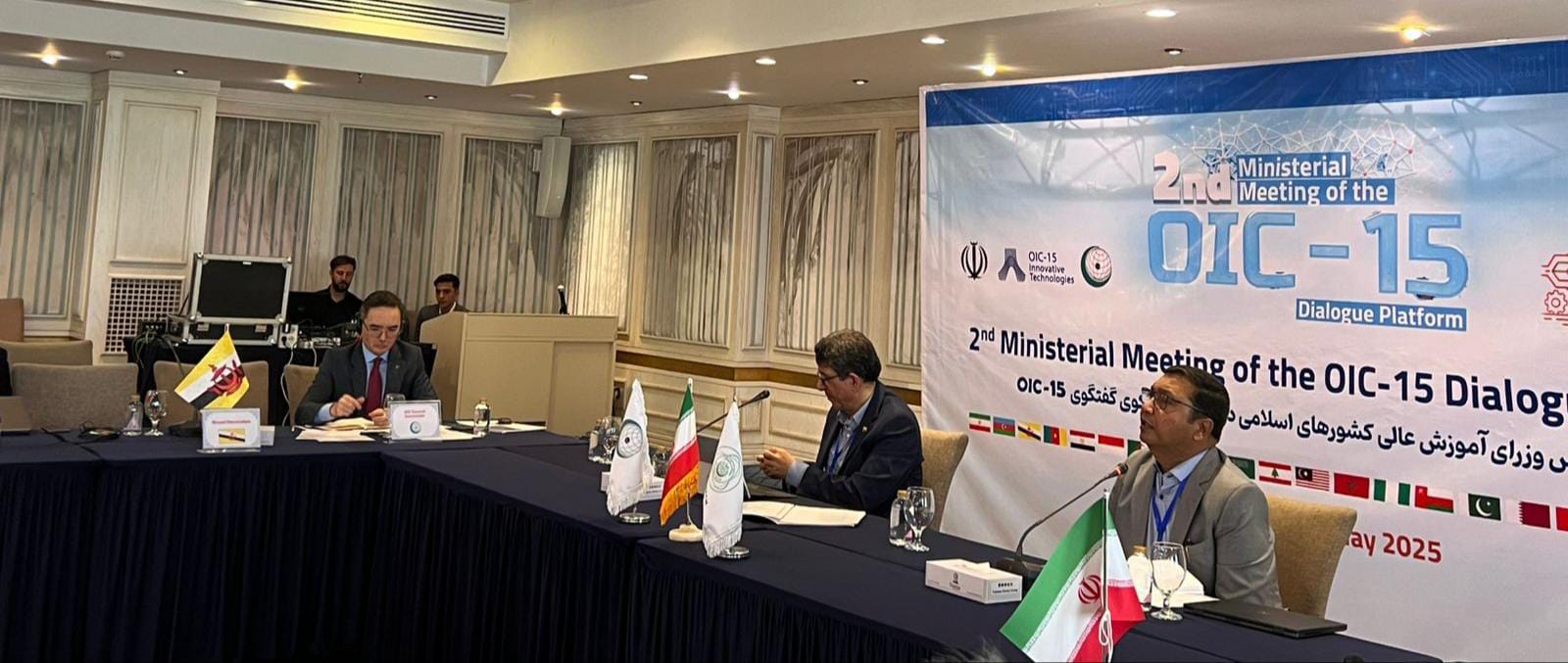ISLAMABAD ( WNAM REPORT ): The Second Ministerial Meeting of the Organization of Islamic Cooperation (OIC-15) Dialogue Platform officially began in Tehran, with a strong focus on the transformative role of artificial intelligence (AI) in advancing science, technology, and higher education across the Islamic world.
Held under the theme “Innovation in Science and Technology through using AI: A strategy for excellence, a bright future for the Islamic World,” the three-day event brings together science ministers, high-level officials, and experts from leading OIC member states to discuss the use of AI to address shared scientific and developmental challenges.
The conference aims to foster regional cooperation through scientific diplomacy and dialogue, providing an opportunity to address pressing issues in the technology sector, particularly those impacting education, economic growth, and innovation.
A key highlight of the event will be the expected approval of the first multilateral document on AI cooperation among Islamic countries , a landmark step toward unified strategies and policy frameworks in emerging technologies.
The Senior Officials Meeting (SOM), held on Sunday as a preparatory session, was co-chaired by H.E. Prof. Dr. Muhammad Iqbal Choudhary, Coordinator General of OIC-COMSTECH, and H.E. Prof. Farhad Yazdandust, First Deputy Minister of Science, Research, and Technology of the Islamic Republic of Iran and Head of the International Scientific Cooperation Centre. The meeting was attended by delegations from member countries, including Brunei Darussalam, Indonesia, Saudi Arabia, Türkiye, Malaysia, Kazakhstan, Iran, and the OIC General Secretariat.
A high-level delegation from OIC-COMSTECH, led by Prof. Dr. Muhammad Iqbal Choudhary is also actively participating in the event. As the host of the OIC-15 Dialogue Platform, COMSTECH’s role underscores its leadership in advancing scientific collaboration and policy integration among OIC member states.
The event will also feature bilateral meetings among science ministers or their representatives and an exhibition showcasing the achievements of knowledge-based companies and institutions in science, technology, and AI.
Another key item on the agenda is the review of decisions taken during the first ministerial meeting in Almaty, along with finalizing the date and venue for the next meeting of the platform.
The OIC Dialogue Platform was initiated by Kazakhstan in 2016 and later approved at the 46th and 47th sessions of the OIC Council of Foreign Ministers in 2018 and 2019. The initiative brings together technologically advanced Islamic countries including Iran, Turkey, Pakistan, Indonesia, and Kazakhstan to build scientific capacity, foster innovation, and tackle global challenges such as climate change, energy, and sustainable development.
With 57 member states across four continents, the Organization of Islamic Cooperation (OIC) is the second-largest intergovernmental organization after the United Nations. Through initiatives like the OIC-15 Dialogue Platform, the OIC continues to play a pivotal role in strengthening multilateral cooperation in science and technology in the Muslim world.
As the Tehran meeting progresses, it is expected to yield actionable outcomes that will shape the future of AI integration and scientific collaboration across OIC member states, paving the way for a brighter, more innovative future for the Islamic world.


